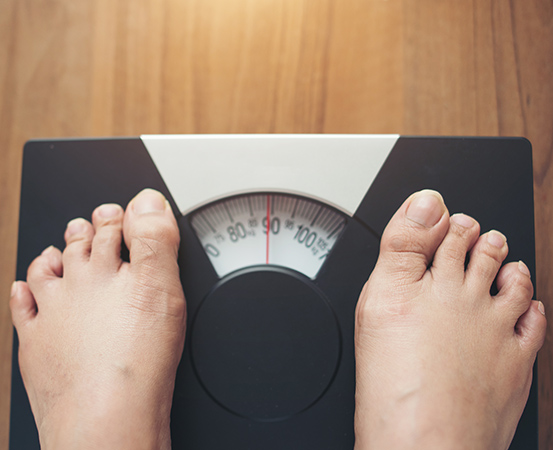
While concerns regarding weight gain apply to people across ages and demographics, senior adults tend to gain weight for different reasons and in different ways. As many chronic illnesses develop in old age, it is important to avoid being overweight and especially, obese.
“As we get older, our bodies don’t respond the same way to weight loss efforts. Our metabolism, muscles, hormones and other body systems are constantly in flux. In fact, obesity can actually start in one’s twenties and gradually peak between 40 to 60, and then slightly decrease after 60,” says Dr Sunitha Lobo, gynaecologist, Fortis Hospital, Bengaluru. “Not everyone will become overweight as they age because body weight is highly influenced by a person’s genetic makeup, level of physical activity and food choices.”
READ MORE
Bring pain to its knees
Post-operative care tips for the elderly
All ears for the elderly
Elderly women, give some amour to your health
The silver lining in the game of losing and maintaining weight is that nobody is alone.
“The amount of lean muscle we have starts to decline by about five to eight per cent each decade after age 30. It’s called sarcopenia. You may also become less active due to age-related health conditions, like arthritis, or if you’ve been recovering from surgery or an injury. Cumulatively, all these factors can have a noticeable impact on your lean muscle mass,” says Dr Lobo.
New research at Karolinska Institutet in Sweden has indicated that the lipid turnover in the fat tissue decreases during ageing and makes it easier to gain weight, even if we don’t eat more or exercise less than before. The study was published in the journal, Nature Medicine.
But why does the loss of muscle matter so much?
“Because lean muscle burns more calories than fat, even at rest,” says Brijesh Singh, personal trainer at the Bengaluru-based Padukone-Dravid Centre for Sports Excellence (CSE). “Unless you are regularly strength training, your body will need fewer calories each day. That makes weight gain likely if you continue to consume the same number of calories you did when you were younger”
In addition, Dr Lobo notes, fluctuations in estrogen levels during perimenopause may cause mood swings that make it tougher to stick to a diet-exercise plan. Even men tend to drop their testosterone levels as they get older, making it harder for them to burn calories like they used to.
According to The American Journal for Clinical Nutrition, while weight-related chronic diseases lead to high rates of mortality in people of all ages, the risk of dying from weight-related diseases increases as people age. Also, older adults who struggle with obesity have higher rates of depression, especially between ages 60-74.
So, what should seniors do to avoid obesity?
Unlike wrinkles and greying hair, avoiding obesity is controllable, say both Dr Lobo and Singh. They have suggested the following:
- Develop or join a community support group with others committed to maintaining a healthy weight. People get motivated more easily in groups.
- Routine physical activity, even in the very old or frail elderly is shown to help avoid obesity even with low impact, stretching, aerobics and strengthening exercises.
- Consult your doctor about the effects of your prescription drugs on weight management and the best way to address it.
- Getting enough sleep helps you burn more calories. A lack of sleep also contributes to sleep deprivation, and that may lead to craving high-energy foods, which are often too sweet or salty.
- Protein leads to healthy muscle development, but if certain sources of protein, such as meat, are harder to eat, focus on other, softer sources of protein like yoghurt, lentils or eggs.
- Consult a dietician or your doctor before trying a fad diet or moving to a drastic weight loss plan. Often diets that are recommended for younger adults can be dangerous and counter-productive in older adults.
- If long exercise sessions are too much, adjust your fitness activity to short intervals throughout the day. You can benefit more from three ten-minute exercise sessions than one that lasts 30 minutes.
















